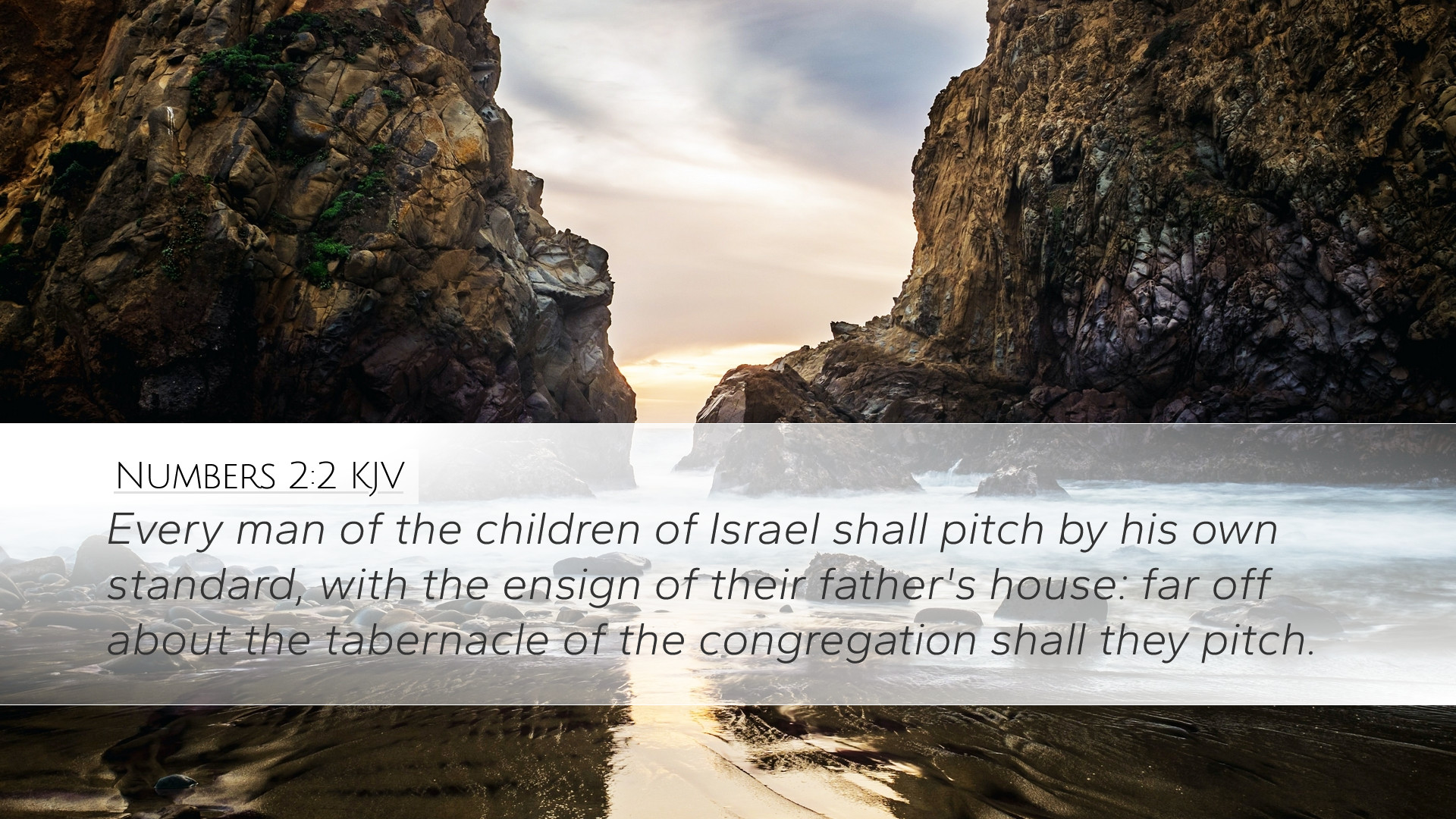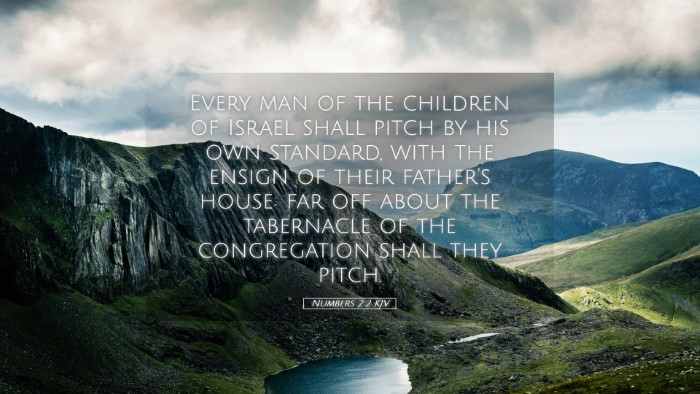Commentary on Numbers 2:2
Verse Context: Understand that Numbers 2:2 states, "Every man of the children of Israel shall pitch by his own standard, with the ensign of their father's house: far off about the tabernacle of the congregation shall they pitch." This verse sets the stage for the order and organization of the Israelite camp in the wilderness.
Significance of the Standards
The command to pitch by their own standards underscores a theme of identity and order within the community. Each tribe had its distinct banner, representing not just their heritage but their individual roles within the larger community. Albert Barnes notes that these standards were symbolic of the tribes' respective inheritances and calls to unity and purpose within God’s plan.
Symbolism of the Standards
- Identity: Each standard represented a specific tribe and its characteristics, fostering a sense of belonging.
- Heritage: The family lineage and legacy were emphasized, as each tribal banner connected to the patriarchal history found in the early chapters of Genesis.
- Divine Order: Matthew Henry elaborates that the arrangement around the tabernacle signifies the centrality of God’s presence among His people.
Organization Around the Tabernacle
In this passage, the orientation of the camp emphasizes God’s role as the focal point of Israel's life. The tabernacle, representing God's presence, is central to their encampment. Adam Clarke explicates that this arrangement not only facilitated worship but also reflected the theological truth that God was their leader and protector.
Theological Implications
- God's Presence: The proximity of the tribes to the tabernacle indicates the importance of divine communion in Israel’s identity; they were to be a people set apart.
- Collective Responsibility: Each tribe's individual and collective responsibility illustrates the need for unity in purpose and mission, echoing themes found throughout the scriptures.
- Order in Worship: This structured approach to living and worship reflects the holistic view of the relationship between God and His people, emphasizing that worship is not just an isolated event but a way of life.
The Role of the Priests and Levites
The involvement of the priests and Levites comes into play in this verse as well, indicating their function not only as mediators but also as guides for the people. They were responsible for maintaining order and facilitating worship. Barnes explains that their duties reinforce the concept of divine hierarchy and the sacredness of worship.
Implications of Leadership and Service
- Leadership Organization: The arrangement highlights the necessity of leadership within the community, where the priests served as intermediaries between God and His people.
- Call to Service: Every member was expected to participate according to their tribal identity, promoting a sense of communal responsibility.
- Spiritual Oversight: The Levites’ role reflects God’s desire for order and sanctity in worship, pointing towards future ecclesiastical structures within the Church.
Conclusion: The Ongoing Relevance of Order and Identity
Numbers 2:2 teaches us about the importance of identity and order in the life of God's people. Pastors, students, theologians, and scholars can learn that God's design for His community includes defined roles and intentional organization that fosters unity and focus on His presence. The lessons of this passage resonate today as the Church seeks to align itself with God’s purposes and maintain order in the worship and work of the Kingdom.
Key Takeaway: As we reflect on this brief yet profound directive given to the Israelites, let us be reminded of our calling to represent our own 'standards' in our communities, closely aligned with the centrality of God's presence in our midst.


